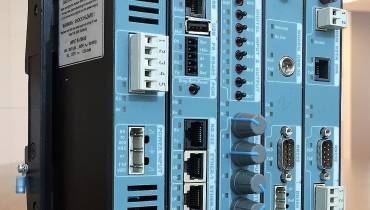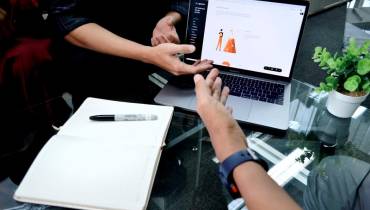Privacy and Security Concerns Dominate as Workers Return to the Office

The changing attitudes of workers returning to the office after two years of home working during the pandemic should prompt a rethink of how offices are designed, with a special focus on privacy for individuals at work.
That is according to the latest research from eFax, a cloud-based fax solution for businesses, which found that 42% of workers are already struggling with a lack of privacy in the workplace.
While the research did find that a third of office workers appreciate being able to access technology at work, 28% find it harder to concentrate, and 16% actively dislike the lack of privacy compared to home working.
Scott Wilson, Vice President of Sales & Service at eFax, stated:
“Before the pandemic, the conventional view was that offices were essential to productivity. Companies focused on solutions that were seen to promote collaboration, and this, in turn, meant open-plan offices, hot desking, and people working side by side in limited spaces.
But during the pandemic, office workers at home in lockdown quickly adapted to regularly using technologies such as video calling and conferencing, plus other digital collaboration tools. They got used to the privacy afforded by working from home. There is an appetite now among workers for the same level of privacy in the workplace. Demand for this – and the technology that supports it – is now a reality.”
More findings of workers’ thoughts about returning to the office

Among the other key findings from the study is that being overheard at work is the biggest concern for 26% of workers, while 32% disliked being disturbed and 28% found it harder to concentrate.
When asked what would help their return to the workplace, 45% of respondents said they wanted more spaces for virtual meetings. A further 19% wanted bigger roles for conference AV equipment.
Meanwhile, more than a fifth of respondents – 22% – highlighted the need for better technology solutions for sending confidential files and data.
Key study findings:
- 42% of workers are finding it hard to adjust to working in an office with less privacy. When asked what was the biggest change, they noticed on returning to the office,16% of all respondents cited a lack of privacy
- Being overheard at work is the biggest concern for 26% of respondents, while 32% disliked being disturbed and 28% found it harder to concentrate
- When asked what would help their return to the workplace, 45% of respondents said they wanted more spaces for virtual meetings. A further 19% wanted bigger roles for conference AV equipment
- More than a fifth of respondents – 22% – highlighted the need for better technology solutions for sending confidential files and data.
eFax conducted the research in early 2022 to gain a greater understanding of how workers felt about returning to the office after the Covid-19 pandemic. The company commissioned a survey of 503 UK workers in large enterprises, small to medium-sized businesses (SMEs), and public sector organizations.
“Privacy – and the security that requires - is obviously a key priority for workers returning to work. In today’s digitalized economy, data is an essential and valuable commodity and organizations have a responsibility to put in place effective measures for workers to operate both privately and securely,” says Wilson.
“This responsibility extends to the secure transmission of sensitive and confidential data. It’s for this reason that faxing remains a critical part of many organizations’ communications infrastructure. However, too many organizations still rely on outdated, insecure, and expensive on-premise fax servers when other more reliable and secure cloud-based alternatives are available,” he concluded.



















